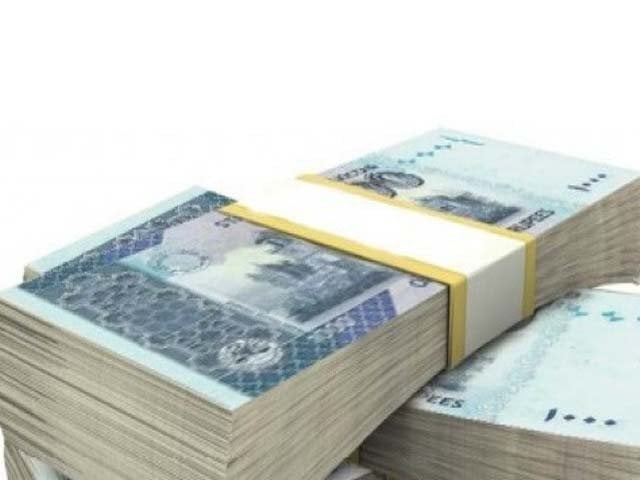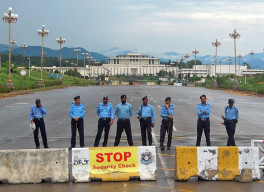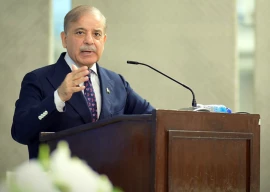
"The previous government drafted a 'Power Electricity Policy and Plan 2018' which only had a policy but no plan," says the report, submitted in the Senate on Monday.
The report of the Special Committee on Circular Debt on Components of Circular Debt, Measures Taken and Required to Reduce the Same has been authored by Leader of the House in Senate, Shibli Faraz, who is also convener of the 13-member committee.
One of the contributors to circular debt, it says, is the high transmission and distribution losses in distribution companies (DISCOs) vis-à-vis the National Electric Power Regulatory Authority (Nepra). It says: "The contribution of transmission and distribution loss in the overall level of circular debt amounts to Rs187b".
Foreign exchange: SBP's reserves dip 3.07%, amount to $9.33b
It says the government imposes taxes on DISCOs, the National Transmission and Dispatch Company (NTDC), the Sui Southern Gas Company Limited (SSGCL), the Sui Northern Gas Pipelines Limited (SNGPL) and the Central Power Purchasing Agency (CPPA) that is passed to the consumers in electricity bills.
"On the other hand, the government gives tariff differential subsidy, agriculture tube well subsidy and other subsidies to power sector, besides loans to pay off circular debt. This appears to be a window dressing exercise."
Moreover, the statistical break-up of the impact of excess losses of DISCOs listed in the report suggests that excess losses of DISCOs were estimated at Rs39 billion in financial year 2013-14, Rs91 billion in 2014-15, Rs123 billion in 2015-16, Rs157 billion in 2016-17 and Rs187 billion in 2017-18.
As of June 30, 2018, the circular debt stood at Rs1.196 trillion out of which Rs613 billion are outstanding towards independent power producers (IPPs), according to the report.
As many as Rs244.3 billion are receivables from the government and related entities to the CPPA. 5.3 million, running defaulters and 1.3 million permanent disconnections, owe the CPPA Rs500.2 million.
Rs79.8 million are receivable to the CPPA in terms of instalments, spill over and deferred amounts. Rs100 billion are the estimated Federal Board of Revenue (FBR) refunds.
Bigger gains from better power access
Rs108 billion are receivable under the head of Nepra's consumer tariff by the previous government. Previous delays in tariff notification and excess losses in DISCOs funded through equity injections by previous governments amounted to Rs338 billion.
Highlighting the funding requirements of powers sector fuel suppliers for the year 2018, the report mentions that the NTDC receivables against use of system surcharge are Rs38 billion.
The Pakistan State Oil (PSO's) receivables from different DISCOs are Rs195.8 billion. Late payment surcharge of the PSO is estimated at Rs86 billion whereas total receivables from general companies were estimated at Rs354.3 billion.
The report identifies that power sector lacks '3Cs.' These are consensus, cohesiveness and continuation to be implemented through a high-powered mentoring body with regard to decisions and policy alignment amongst stakeholders. The document recommends making provinces stakeholders in power sector. It also recommends monitoring of DISCOs through a high-powered committee or an institution.
Despite war rhetoric by India, PM calls for trade
Meanwhile, the Senate on Monday debated on the amendments the government intends to introduce in the Finance Bill 2018. Former leader of the opposition Sherry Rehman from the Pakistan People's Party (PPP) criticised the government for not detailing any strategy in the minibudget to deal with the issue of piled up circular debt, which, she said, is increasing by each passing day.
"It is time to go beyond theatrics and rhetoric. It took the government a lot of time to come up with what seems like a shortsighted plan with no clear indication as to where it intends to take the country.
"The announced minibudget sounded more like a statement than a coherent strategy. Strangely, there was no mention as to how the circular debt issue will be tackled and how state enterprises will be put in order. How exactly do they plan to increase revenues and cut back expenses?
"Does the government have a clear blueprint for economic stimulation with regards to trade, investment and growth? How does the government intend to stimulate our exports? Increasing import tariff is not enough to stabilise our spiralling deficit," she added.
The upper house will continue debate on minibudget today (Tuesday).



1731975305-0/Untitled-design-(40)1731975305-0-165x106.webp)
1731975060-0/Untitled-design-(39)1731975060-0-165x106.webp)





1731929357-0/Express-Tribune-(6)1731929357-0-270x192.webp)






COMMENTS
Comments are moderated and generally will be posted if they are on-topic and not abusive.
For more information, please see our Comments FAQ